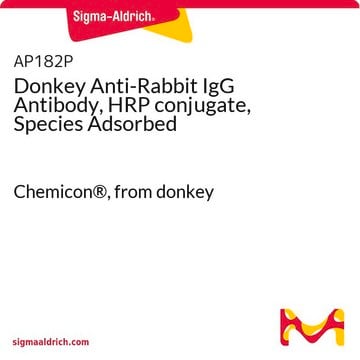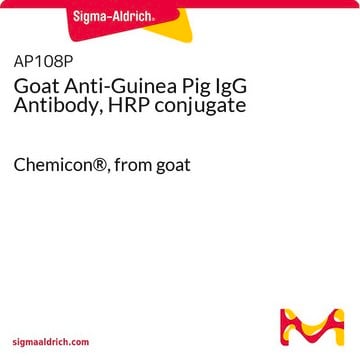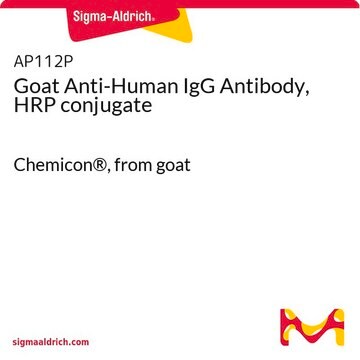SAB3700861
Anti-Rabbit IgG (Fc specific) antibody produced in donkey
affinity isolated antibody, buffered aqueous solution
About This Item
Productos recomendados
biological source
donkey
Quality Level
conjugate
unconjugated
antibody form
affinity isolated antibody
antibody product type
secondary antibodies
clone
polyclonal
form
buffered aqueous solution
species reactivity
rabbit
concentration
2.04 mg/mL
technique(s)
immunohistochemistry: suitable
indirect ELISA: suitable
western blot: suitable
shipped in
wet ice
storage temp.
2-8°C
target post-translational modification
unmodified
General description
Specificity
Immunogen
Physical properties
Physical form
Disclaimer
¿No encuentra el producto adecuado?
Pruebe nuestro Herramienta de selección de productos.
Storage Class
10 - Combustible liquids
flash_point_f
Not applicable
flash_point_c
Not applicable
Certificados de análisis (COA)
Busque Certificados de análisis (COA) introduciendo el número de lote del producto. Los números de lote se encuentran en la etiqueta del producto después de las palabras «Lot» o «Batch»
¿Ya tiene este producto?
Encuentre la documentación para los productos que ha comprado recientemente en la Biblioteca de documentos.
Nuestro equipo de científicos tiene experiencia en todas las áreas de investigación: Ciencias de la vida, Ciencia de los materiales, Síntesis química, Cromatografía, Analítica y muchas otras.
Póngase en contacto con el Servicio técnico








